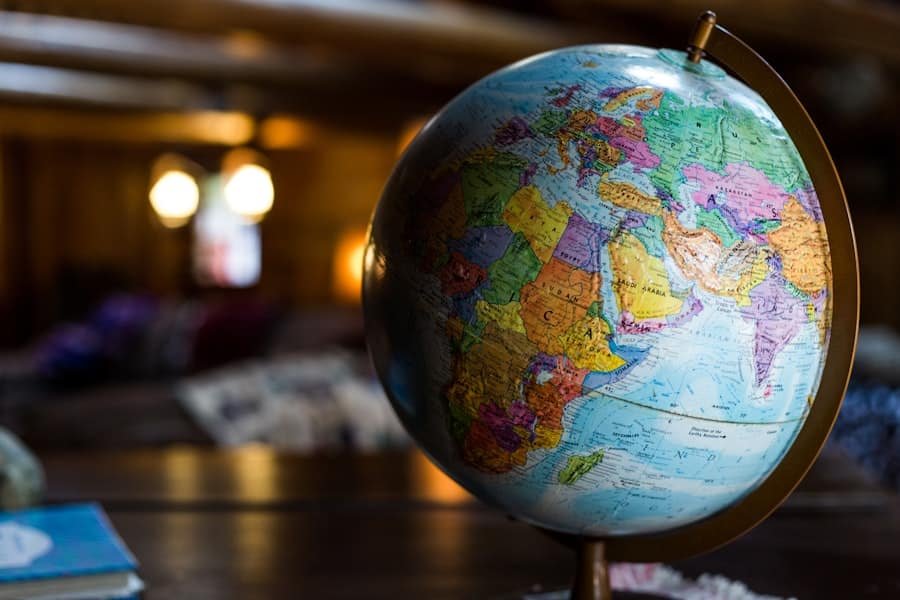Trade policies are fundamental to the economic development of emerging economies. These policies regulate the international exchange of goods and services, significantly impacting a nation’s economic growth, employment rates, and overall prosperity. Developing countries often encounter specific challenges in implementing trade policies due to limited resources, inadequate infrastructure, and underdeveloped institutional frameworks.
Consequently, it is crucial for these nations to thoroughly evaluate the implications of their trade policies and formulate strategies that promote sustainable economic development. In developing economies, trade policies typically aim to foster industrialization, attract foreign direct investment, and boost export revenues. These policies can manifest in various forms, including tariffs, quotas, subsidies, and regulatory measures.
While such policies may yield short-term advantages, they can also have long-lasting effects on the economy. For instance, protectionist trade policies may temporarily safeguard domestic industries from foreign competition, but they can also lead to economic inefficiencies, reduced global competitiveness, and increased consumer prices. Conversely, free trade agreements can create new market opportunities for developing economies and encourage economic diversification, but they may also expose these countries to heightened competition and market fluctuations.
Therefore, developing economies must carefully weigh the advantages and risks associated with their trade policies to ensure long-term economic growth and development.
Key Takeaways
- Developing economies often face unique challenges in implementing trade policies due to their limited resources and infrastructure.
- Protectionist trade policies can have a negative impact on developing economies by limiting access to international markets and hindering economic growth.
- Free trade agreements can provide developing economies with access to new markets, technology, and investment opportunities, leading to economic development and growth.
- Case studies of developing economies can provide valuable insights into the impact of trade policies on economic development and the challenges faced in implementation.
- Recommendations for improving trade policies in developing economies include investing in infrastructure, promoting innovation, and fostering a conducive business environment.
The Role of Trade Policies in Economic Development
Trade policies play a critical role in the economic development of developing economies. These policies can have a significant impact on a country’s ability to attract foreign investment, promote industrialization, and increase export earnings. By regulating the flow of goods and services across borders, trade policies can help developing economies to integrate into the global economy and take advantage of new market opportunities.
In addition, trade policies can also influence the allocation of resources within the economy, promote technological innovation, and improve productivity. One of the key roles of trade policies in economic development is to promote industrialization and economic diversification. By providing incentives for domestic industries and protecting them from foreign competition, trade policies can help developing economies to build a strong manufacturing base and reduce their reliance on primary commodities.
This can lead to increased employment, higher incomes, and improved living standards for the population. In addition, trade policies can also help developing economies to attract foreign investment by providing a stable and predictable business environment. This can lead to increased capital inflows, technology transfer, and knowledge spillovers, which can further support economic development.
The Impact of Protectionist Trade Policies on Developing Economies

Protectionist trade policies can have a significant impact on developing economies. While these policies are often implemented with the intention of protecting domestic industries and promoting economic development, they can also have unintended consequences that may hinder long-term growth. For example, tariffs and quotas can shield domestic industries from foreign competition, but they can also lead to inefficiencies, reduced competitiveness, and higher consumer prices.
In addition, protectionist trade policies can also lead to retaliation from trading partners, which can further disrupt international trade and investment flows. Protectionist trade policies can also have negative effects on developing economies by limiting access to new technologies and knowledge. By restricting imports and foreign investment, these policies can hinder technological innovation and reduce productivity growth.
This can have long-term consequences for the economy by limiting its ability to compete in global markets and adapt to changing consumer preferences. In addition, protectionist trade policies can also lead to reduced consumer choice and higher prices for imported goods, which can negatively impact the standard of living for the population.
The Benefits of Free Trade Agreements for Developing Economies
Free trade agreements can offer significant benefits for developing economies. By opening up new markets and reducing trade barriers, these agreements can provide opportunities for economic diversification, increased export earnings, and improved access to new technologies and knowledge. In addition, free trade agreements can also promote foreign investment by providing a stable and predictable business environment, which can lead to increased capital inflows, technology transfer, and knowledge spillovers.
One of the key benefits of free trade agreements for developing economies is the potential for increased export earnings. By reducing tariffs and other trade barriers, these agreements can help developing economies to access new markets and increase their competitiveness in global trade. This can lead to increased employment, higher incomes, and improved living standards for the population.
In addition, free trade agreements can also promote economic diversification by encouraging domestic industries to expand into new markets and develop new products and services.
The Challenges Faced by Developing Economies in Implementing Trade Policies
Developing economies face a number of challenges when it comes to implementing trade policies. These challenges can include limited institutional capacity, inadequate infrastructure, and a lack of resources. As a result, developing economies may struggle to effectively regulate international trade and take advantage of new market opportunities.
In addition, these countries may also face political resistance to trade liberalization from domestic industries that fear increased competition from foreign producers. Another challenge faced by developing economies in implementing trade policies is the potential for negative social and environmental impacts. For example, increased trade liberalization can lead to job displacement in certain industries and regions, which can have negative consequences for the affected workers and their communities.
In addition, increased international trade can also lead to environmental degradation if not properly regulated. Developing economies must carefully consider these potential impacts when designing their trade policies and develop strategies to mitigate any negative consequences.
Case Studies of Developing Economies and Their Trade Policy Impacts

One example of a developing economy that has successfully implemented trade policies to support economic development is South Korea. In the 1960s and 1970s, South Korea implemented a series of industrial policies aimed at promoting export-oriented industrialization. These policies included export subsidies, import restrictions, and government support for key industries such as steel, shipbuilding, and electronics.
As a result of these policies, South Korea was able to build a strong manufacturing base and become a major exporter of consumer electronics and automobiles. This led to significant economic growth, increased employment, and improved living standards for the population. Another example of a developing economy that has faced challenges in implementing trade policies is Nigeria.
Despite being rich in natural resources such as oil, Nigeria has struggled to diversify its economy and reduce its reliance on primary commodities. The country has faced challenges in implementing effective trade policies due to political instability, corruption, and inadequate infrastructure. As a result, Nigeria has struggled to attract foreign investment and promote industrialization.
This has led to high levels of unemployment and poverty in the country.
Recommendations for Improving Trade Policies in Developing Economies
There are several recommendations for improving trade policies in developing economies. First, these countries should focus on building institutional capacity and improving governance to effectively regulate international trade. This may involve investing in training programs for government officials, improving transparency and accountability in trade regulations, and strengthening regulatory institutions.
Secondly, developing economies should prioritize infrastructure development to support international trade. This may involve investing in transportation networks, ports, and customs facilities to facilitate the movement of goods across borders. In addition, these countries should also focus on improving access to finance for small and medium-sized enterprises to help them take advantage of new market opportunities.
Finally, developing economies should carefully consider the social and environmental impacts of their trade policies and develop strategies to mitigate any negative consequences. This may involve implementing social safety nets for workers affected by trade liberalization, promoting sustainable production practices, and investing in environmental protection measures. In conclusion, trade policies play a crucial role in the economic development of developing economies.
These countries face unique challenges when it comes to implementing effective trade policies but also have significant opportunities for growth through international trade. By carefully considering the implications of their trade policies and implementing strategies to support sustainable economic development, developing economies can take advantage of new market opportunities and improve living standards for their populations.
If you’re interested in learning more about the impact of trade policies on developing economies, you should check out the article “The Role of International Trade in Economic Development” on The Econosphere. This article delves into the ways in which trade policies can either hinder or promote economic growth in developing countries, providing valuable insights into this important topic.
FAQs
What are trade policies?
Trade policies are government regulations and actions that influence the flow of goods and services between countries. These policies can include tariffs, quotas, subsidies, and other measures that affect international trade.
How do trade policies impact developing economies?
Trade policies can have both positive and negative impacts on developing economies. On one hand, they can provide access to new markets and technologies, which can stimulate economic growth. On the other hand, they can also create barriers to trade and limit the ability of developing economies to compete in the global market.
What are some common trade policies that affect developing economies?
Common trade policies that affect developing economies include tariffs, which are taxes on imported goods, and quotas, which limit the quantity of certain goods that can be imported. Subsidies, which are financial assistance from the government to domestic industries, can also impact developing economies.
How do trade policies affect the agricultural sector in developing economies?
Trade policies can have a significant impact on the agricultural sector in developing economies. For example, subsidies in developed countries can lead to overproduction and lower prices for agricultural products, which can harm farmers in developing economies who cannot compete.
What are some potential solutions to mitigate the negative impact of trade policies on developing economies?
Some potential solutions to mitigate the negative impact of trade policies on developing economies include promoting fair trade practices, providing technical assistance and capacity building, and negotiating trade agreements that take into account the specific needs of developing economies. Additionally, investing in infrastructure and education can help developing economies become more competitive in the global market.








